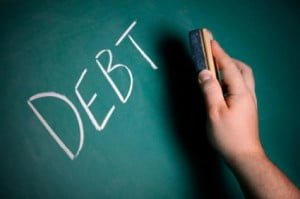While studies have shown that over the past year alone,
bankruptcy filings have shown a slight decrease, this doesn’t necessarily mean
the economy is improving. A number of consumers have cut back on spending
and borrowing since the housing market collapse in 2007. But, as people
try to stick to reasonable budget, dealing with other pressing issues
can take its toll on how you can regain financial control on your own.
Not to force anyone into doing something they don’t want to; there
are a large number of consumers who may be eligible to file for protection,
but fail to do so due to lack of knowledge or being steered into the wrong
direction when misinformed by bankruptcy myths. It is true that bankruptcy
may not eliminate secured debt such as mortgage or car loans, but you
may be able to obtain an affordable repayment plan (Chapter 13 bankruptcy) to help you retain your house and vehicle, instead of continuously struggling
to make monthly payments.
You may not be able to discharge certain debts such as spousal/child support
or recent
tax debt . But, eliminating other unsecured debt that qualifies for elimination
or discharge (Chapter 7 bankruptcy), may allow you to pay priority debts easier. You may need to review how
filing would be beneficial for your situation. When you feel filing is
the solution to your financial woes, make sure you review credit counseling
legal requirements. There are approved counseling agencies available to
help you complete the necessary course content.
Reference:
http://www.huffingtonpost.com/dedrick-muhammad/when-is-bankruptcy-the-an_b_3779808.html
